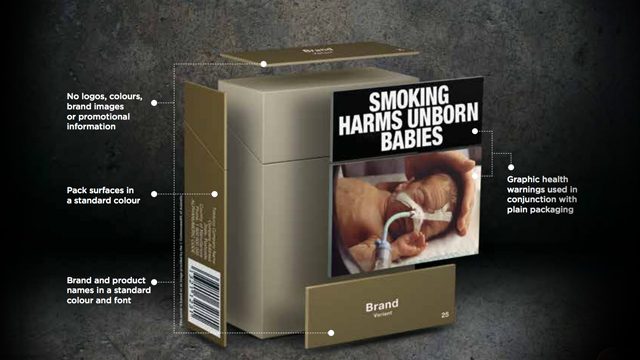SUMMARY
This is AI generated summarization, which may have errors. For context, always refer to the full article.

MANILA, Philippines – The graphic health warning law took 7 years before it hurdled Philippine Congress, and another two years to take effect.
How long, then, will it take for the country to see another tobacco-control policy in place: plain packaging on cigarette packs?
“I’m hopeful that before the end of the Duterte presidency, we will be able to have plain packaging,” Maricar Limpin, executive director of the Framework Convention on Tobacco Control Alliance Philippines (FCAP), told Rappler in a phone interview on Tuesday, May 31.
May 31 marks World No Tobacco Day. For 2016, the World Health Organization (WHO) urged countries to implement plain packaging for tobacco products.
Plain packaging is a measure that prohibits the use of logos, colors, brand images, or promotional information on cigarette packs. It only allows brand or product names in a standard color and font style.
Health advocates earlier lauded President-elect Rodrigo Duterte’s plan to replicate Davao City’s smoking ban on a nationwide scale.
Limpin said 3 to 4 years is already a good target for the enactment of a measure on plain packaging.
According to the WHO, evidence supports the conclusion that plain packaging reduces the attractiveness of tobacco products, restricts the use of a cigarette pack as a form of advertising and promotion, limits misleading packaging, and increases the effectiveness of health warnings.
To date, only Australia has fully implemented plain packaging since December 2012, and it is the first country in the world to do so. Ireland, France, and the United Kingdom have passed laws to implement the measure in 2016.
‘Better measure’
Limpin, who was in Iloilo City to commemorate this year’s World No Tobacco Day, told Rappler that they are getting ready to push for plain packaging in the Philippines as a next step to the graphic health warning law.
“Right now what we want to do is first fully implement the graphic health warning law,” she said, noting FCAP has yet to see wider implementation of the law.
While the law was signed in 2014, it only took effect March 2016. Starting November 2016, the law requires retailers and sellers of tobacco products to ensure the removal from all displays of noncompliant tobacco products.
For Limpin, plain packaging is a “better measure” than the graphic health warning because cigarette packs with no color “won’t be enticing to the consumer.”
“Kung napansin niyo (If you’ve noticed), cigarette packs [have] really evolved. The packaging is really very enticing, very colorful. It’s part of their marketing strategy, to entice young people, the young ones, to buy cigarettes. Importante, mag-prepare na tayo maipasa, maitulak natin sa ating bansa [ang plain packaging] (What’s important is we prepare to enact, push for plain packaging in our country),” Limpin explained.
Aside from FCAP, other health groups, such as National Youth for Sin Tax Movement and HealthJustice, also expressed their support for plain tobacco packaging in the country.
Tobacco kills around 6 million people each year, with more than 5 million as a result of direct tobacco use. In the Philippines, 240 Filipinos die every day because of major tobacco-related diseases. That’s 87,600 premature deaths per year.
The Philippines is a signatory to WHO’s Framework Convention on Tobacco Control, which has implementation guidelines that recommend countries to consider adopting plain packaging. – Rappler.com
Add a comment
How does this make you feel?
There are no comments yet. Add your comment to start the conversation.